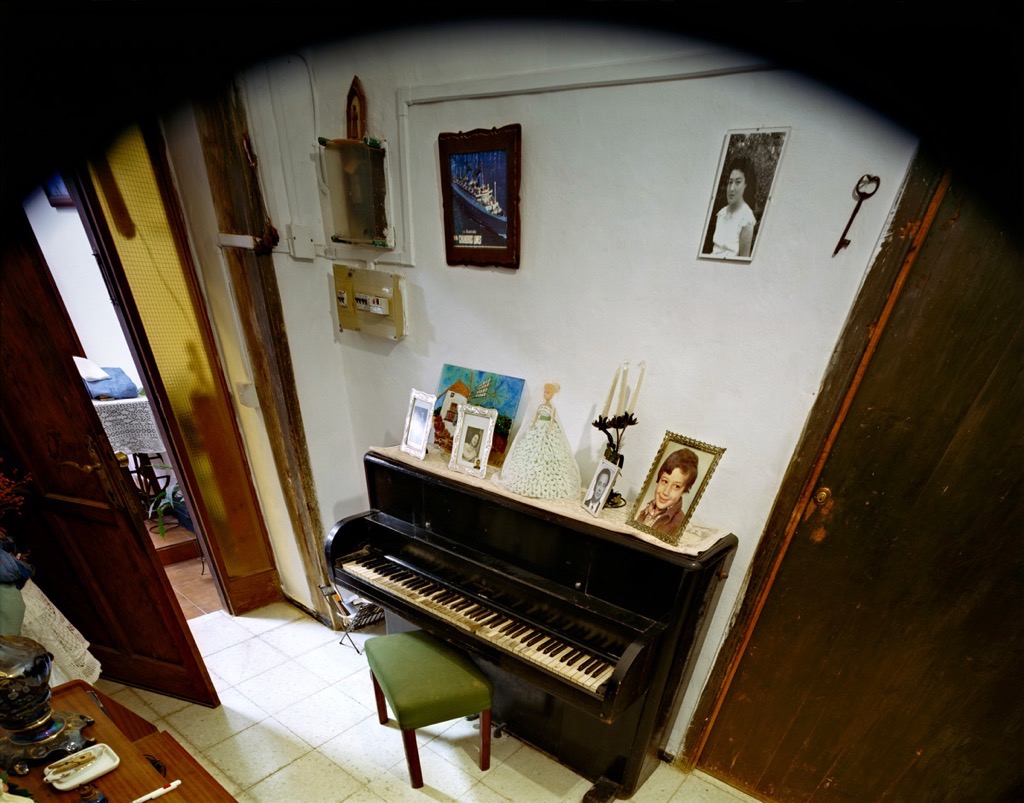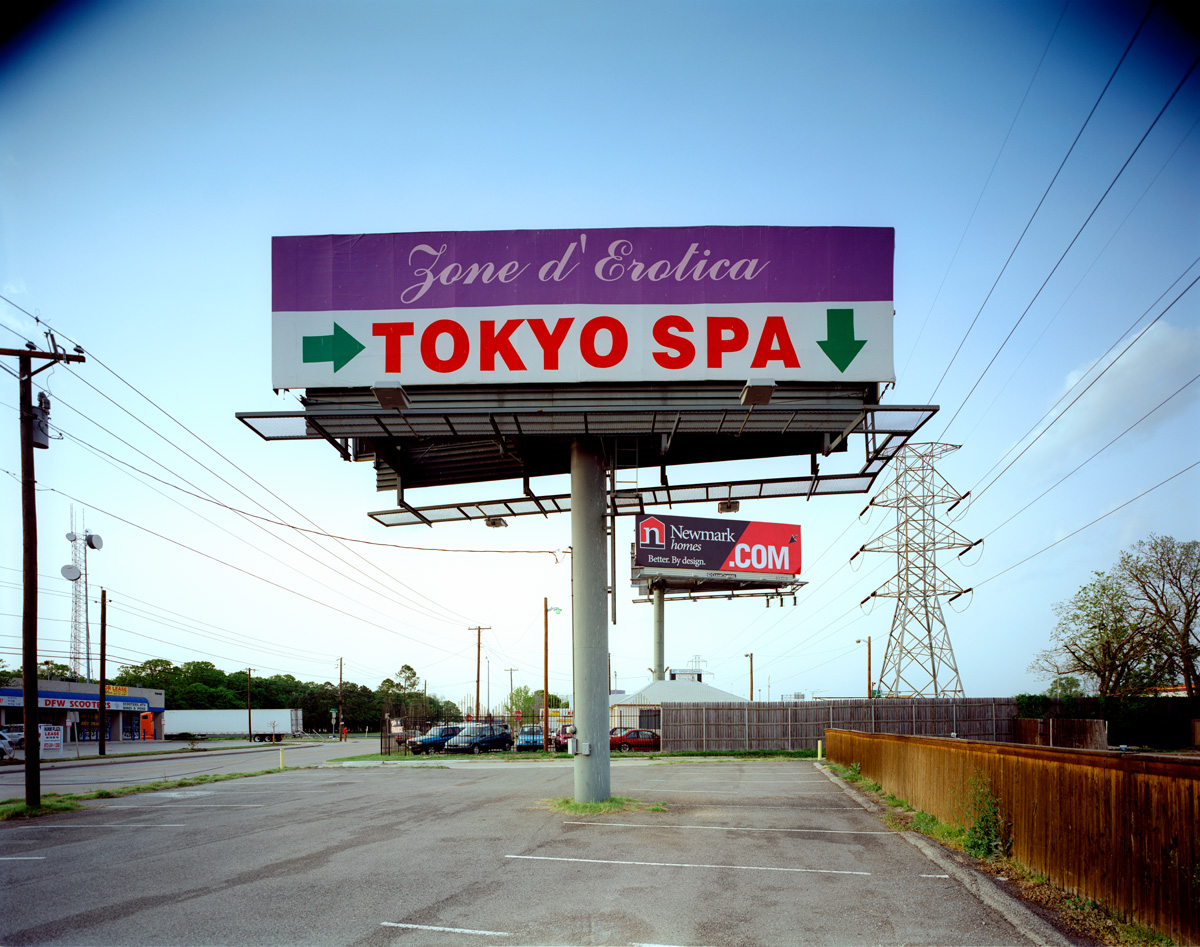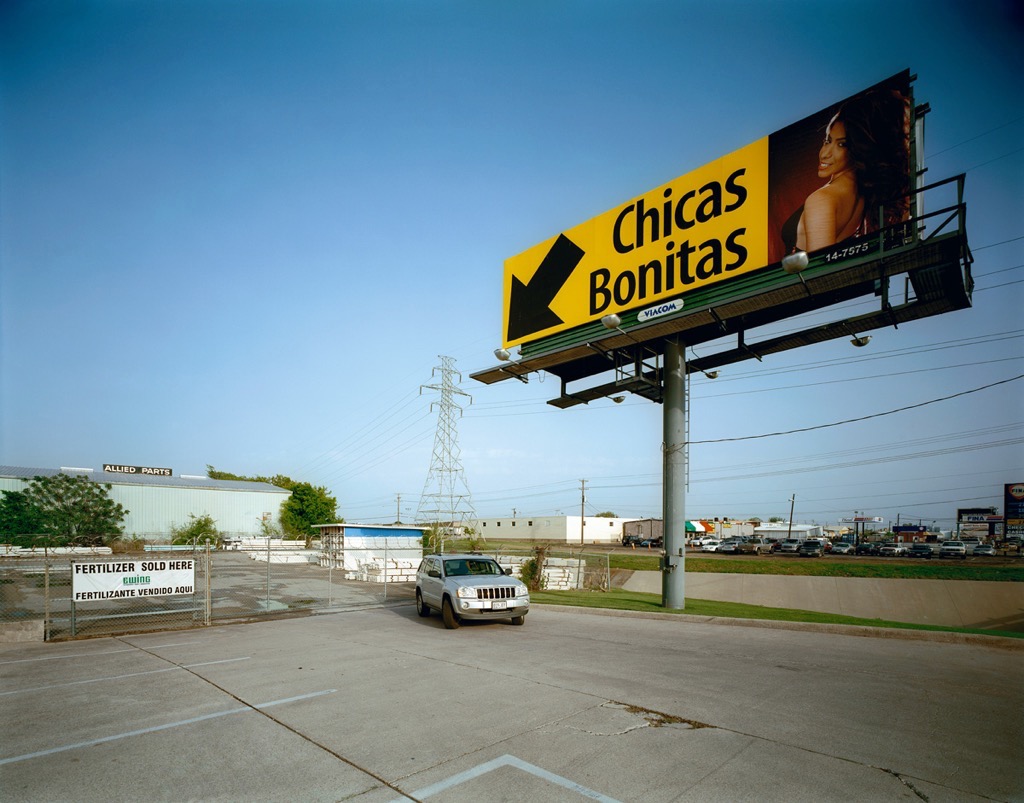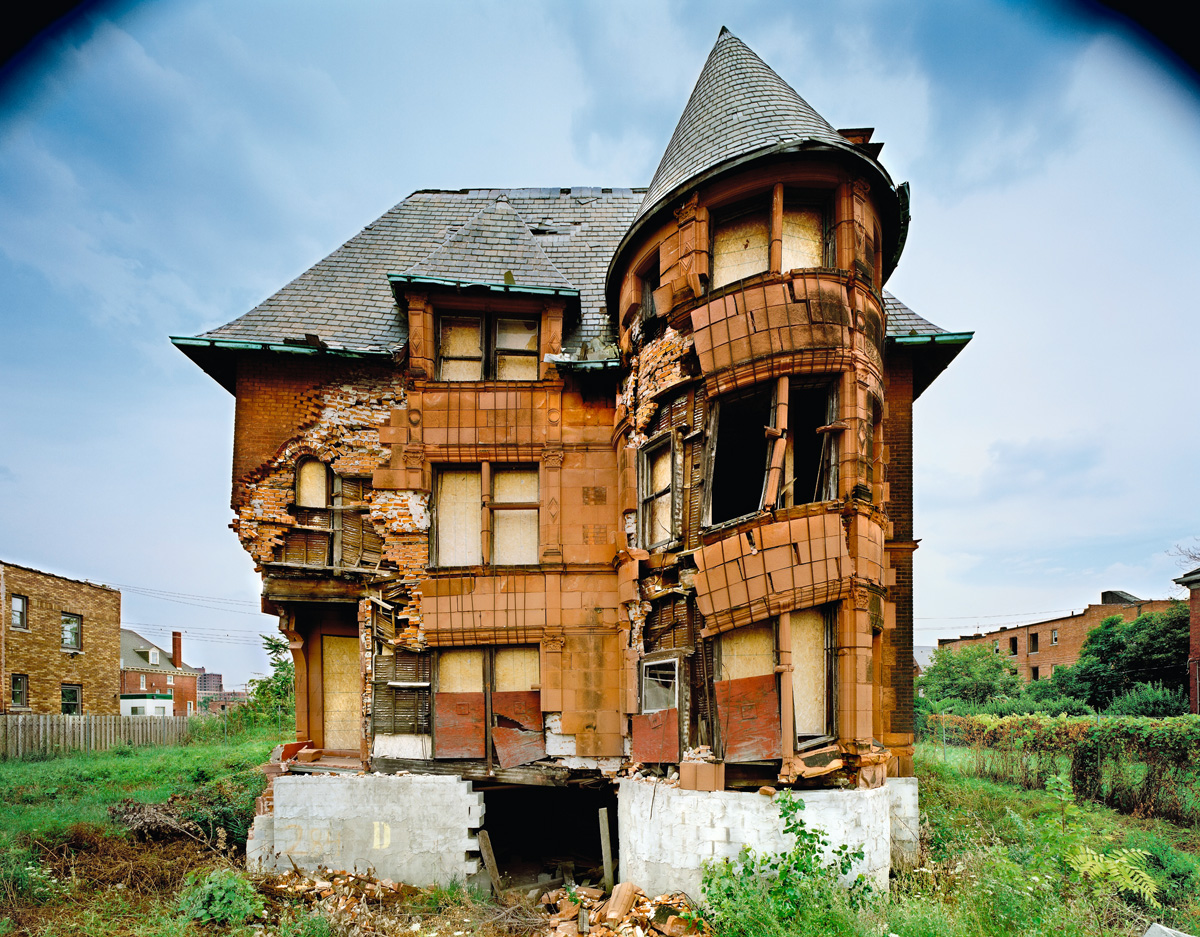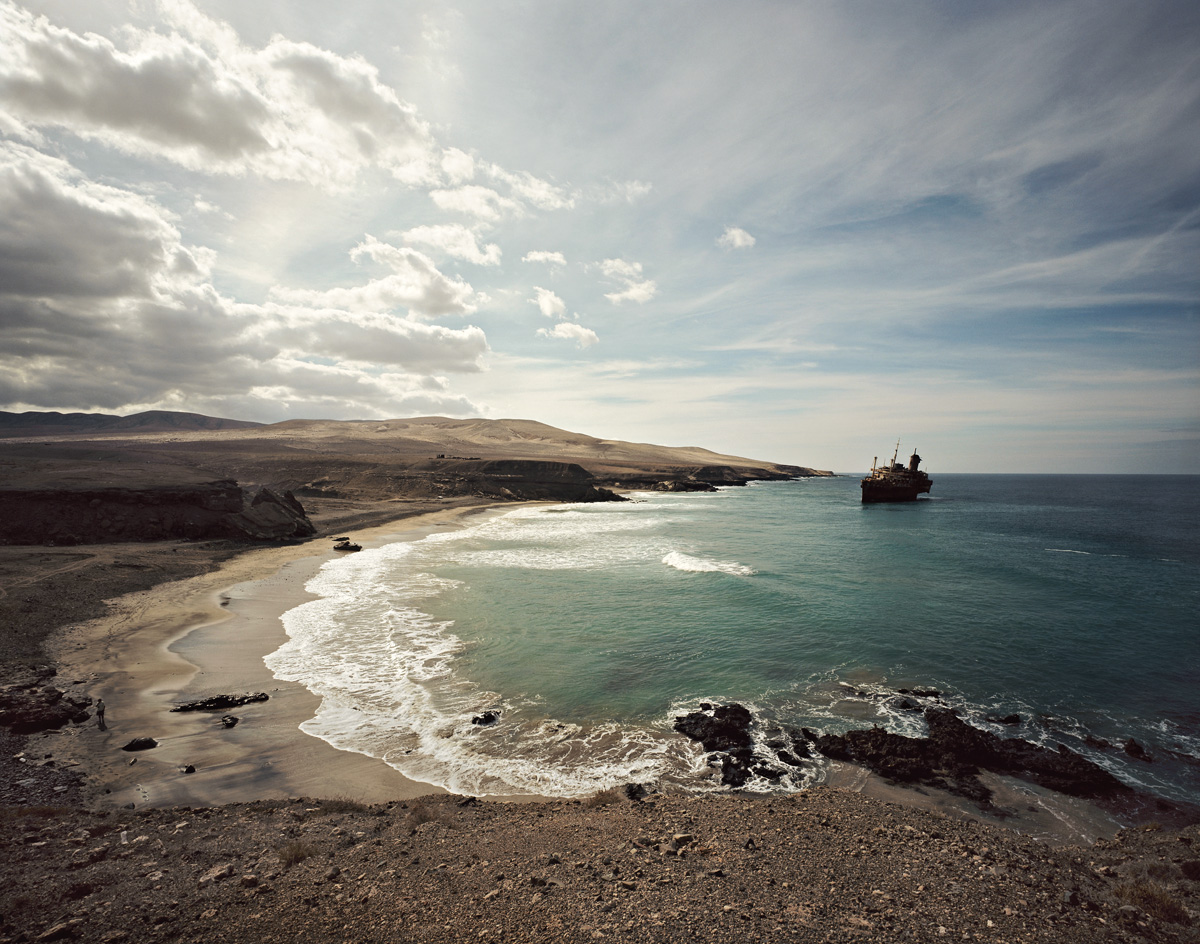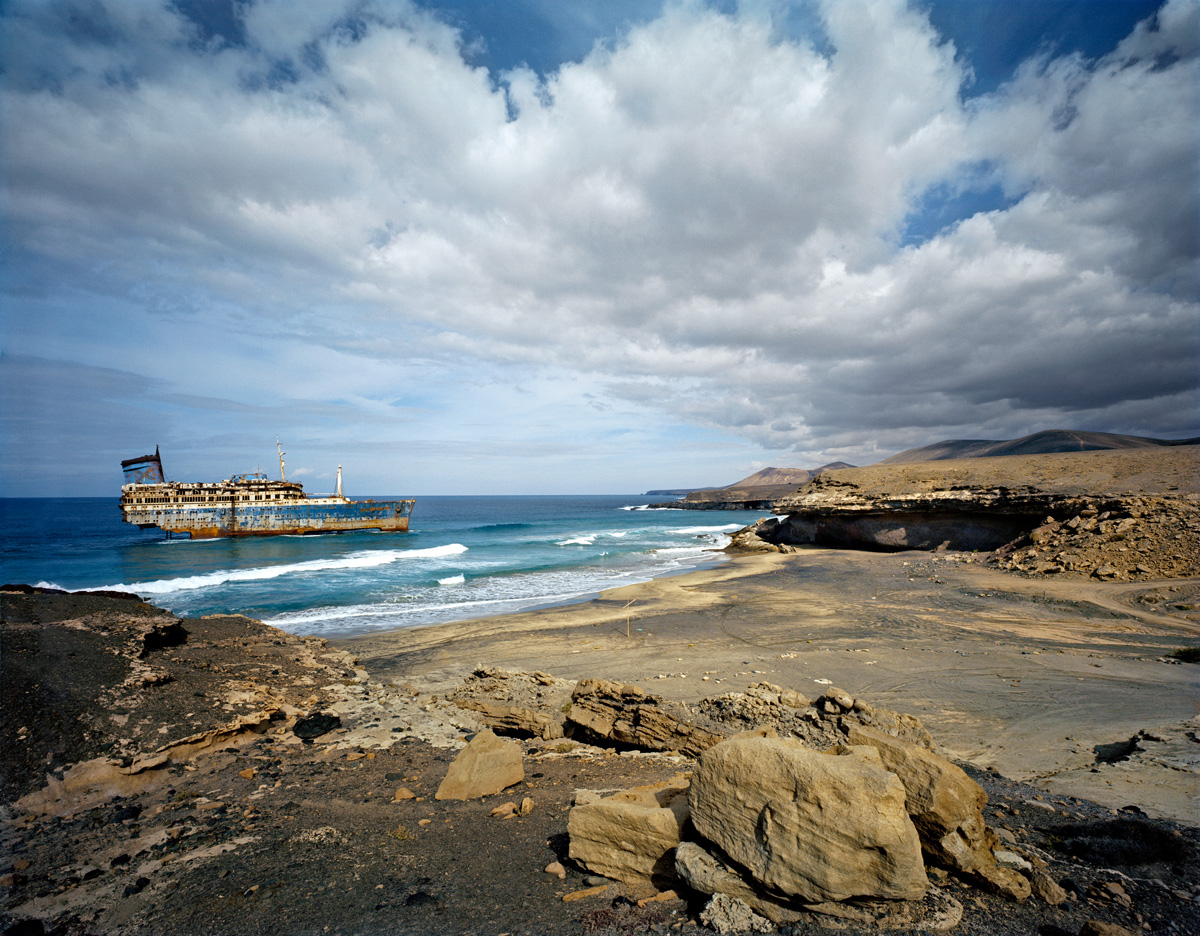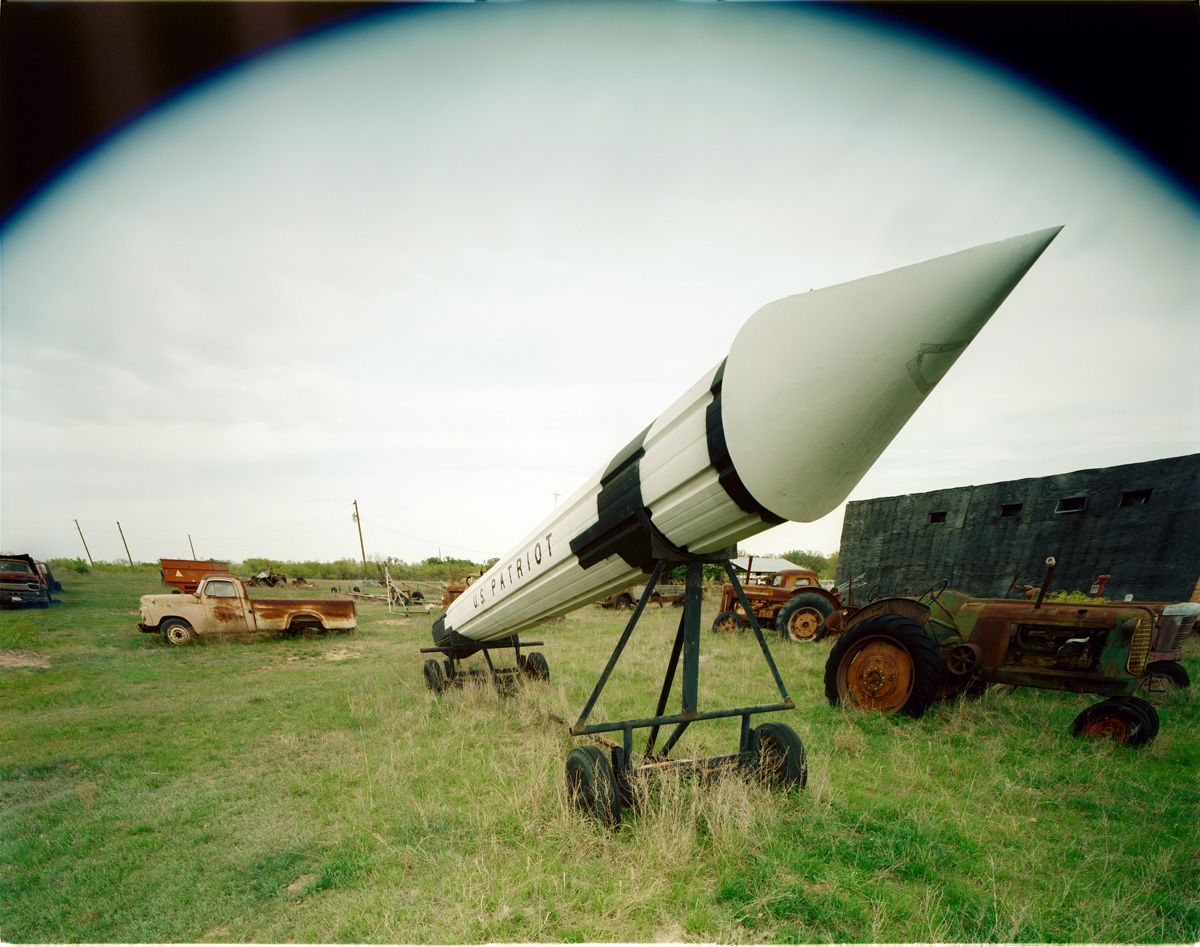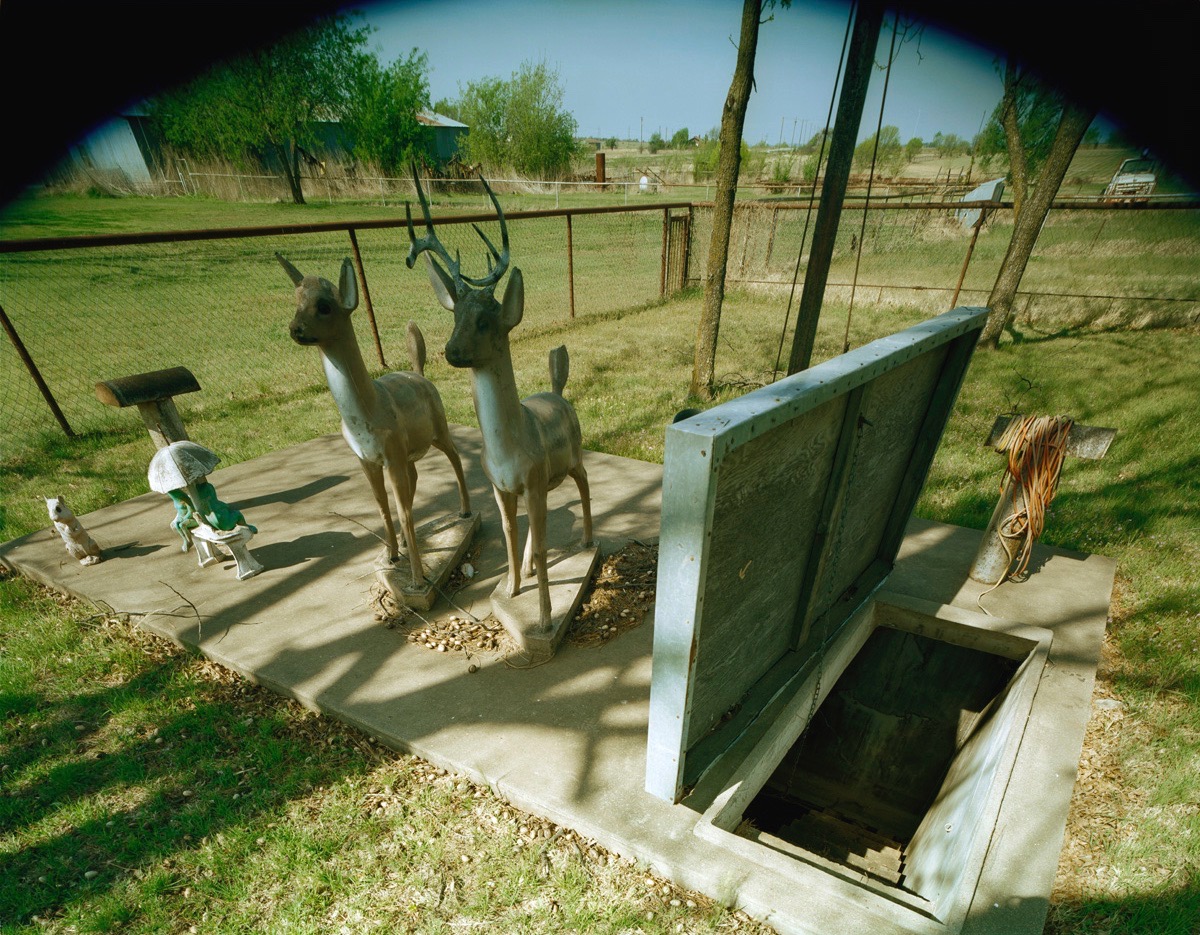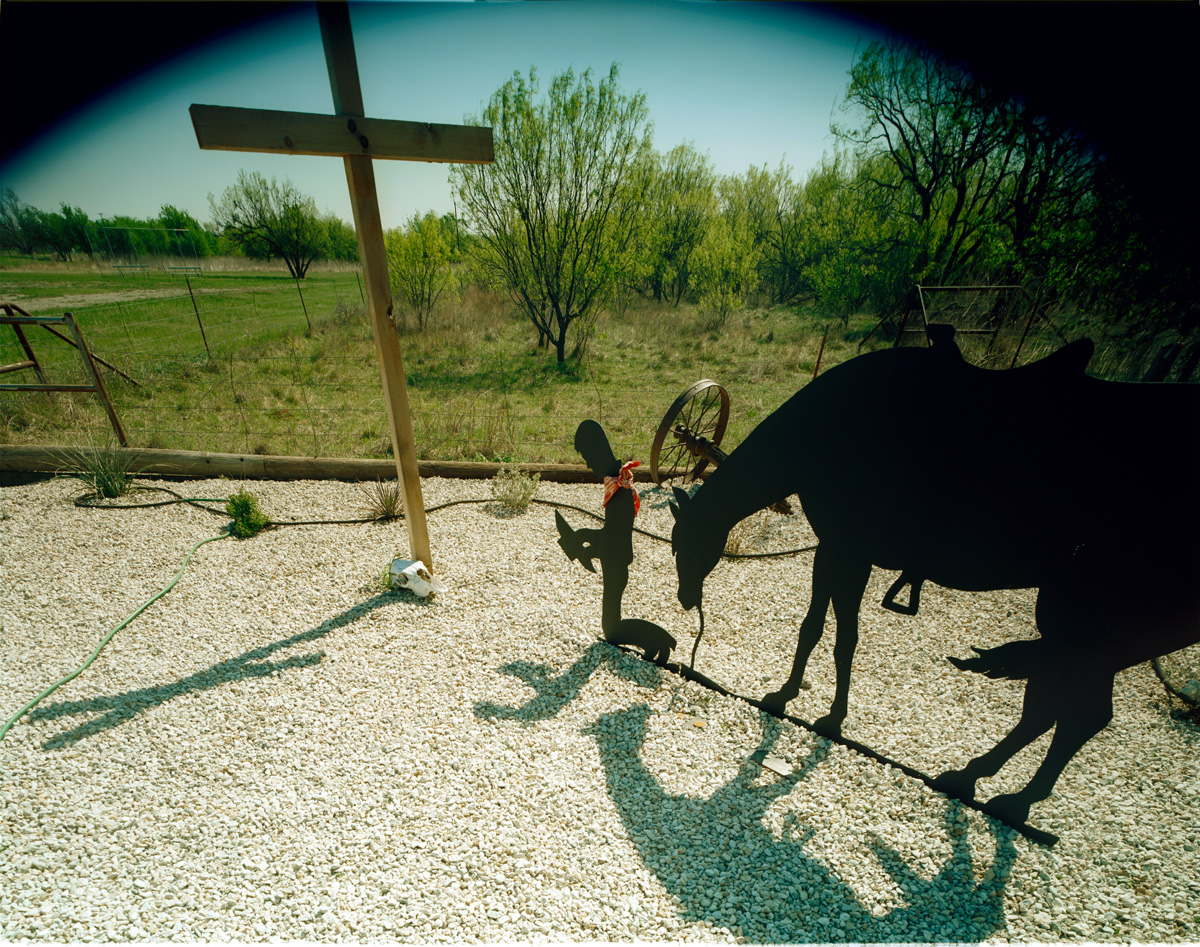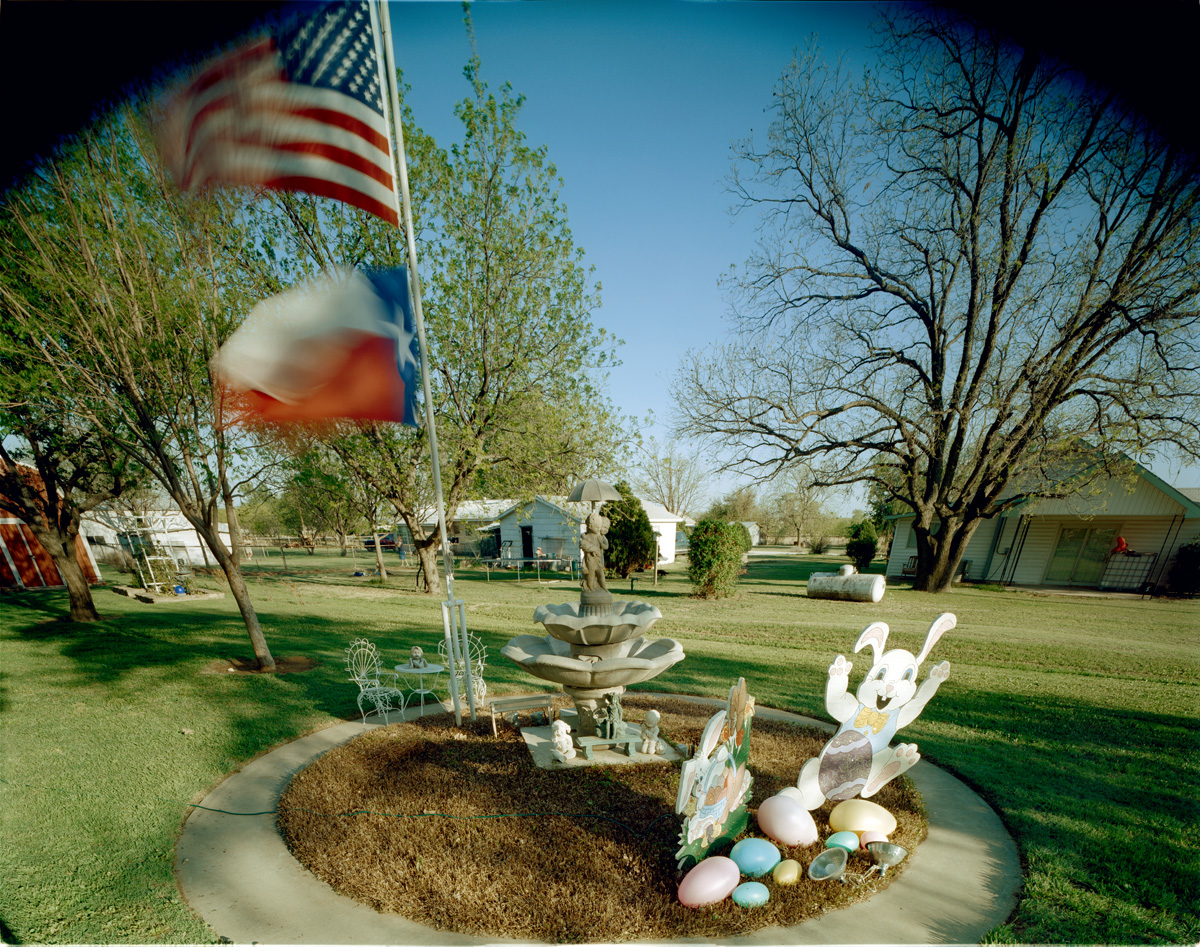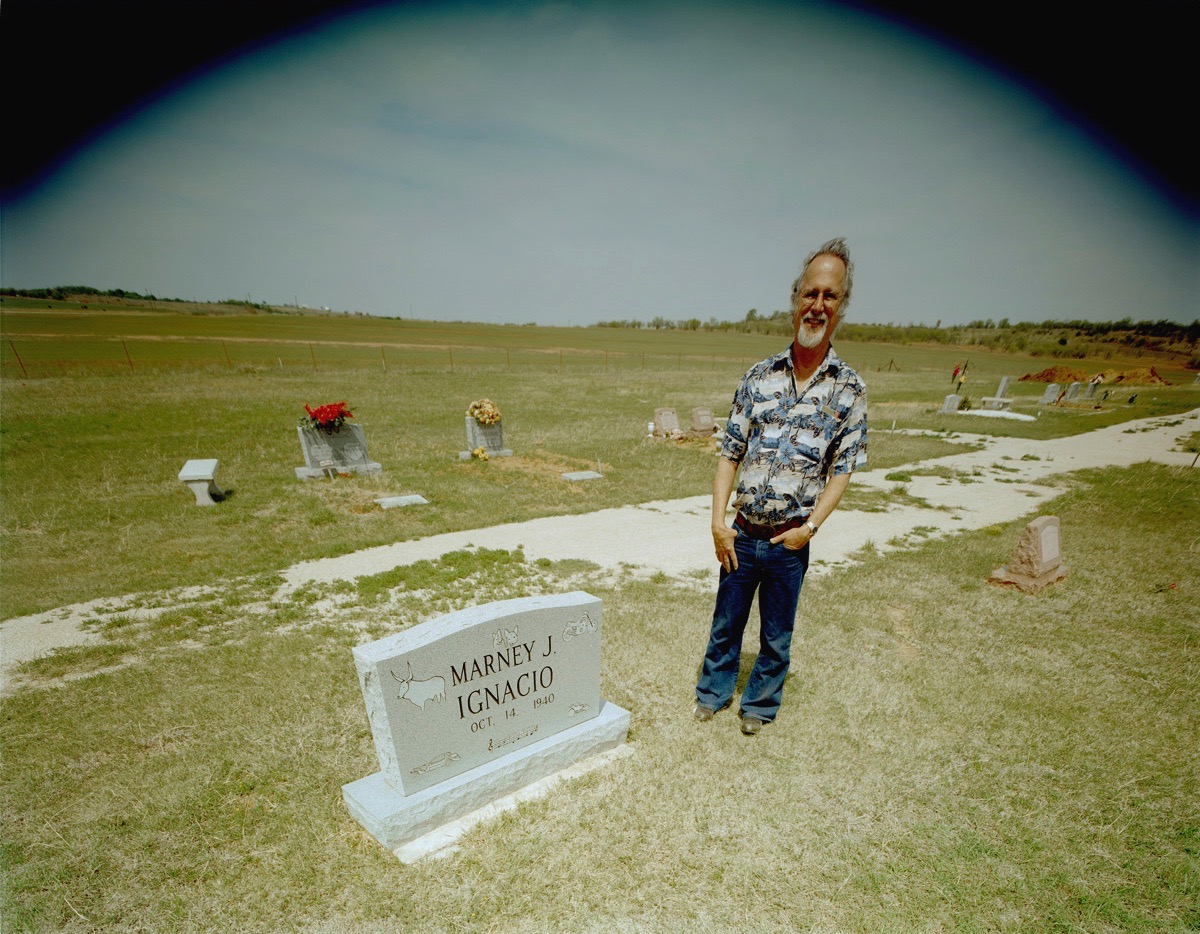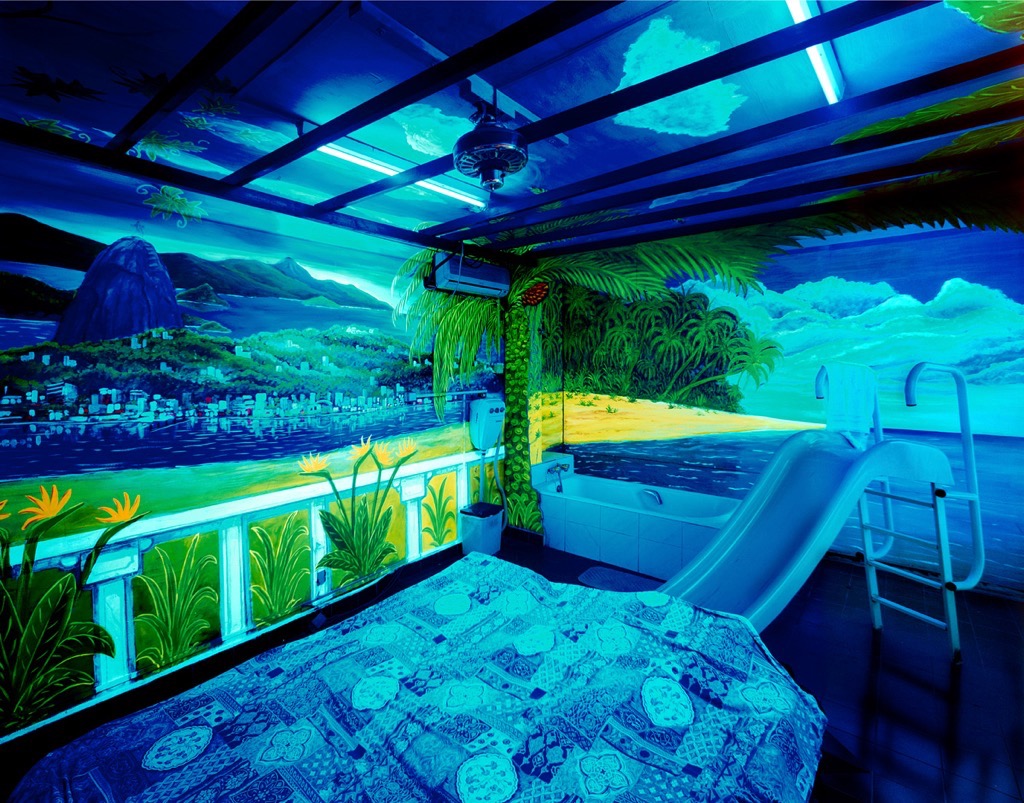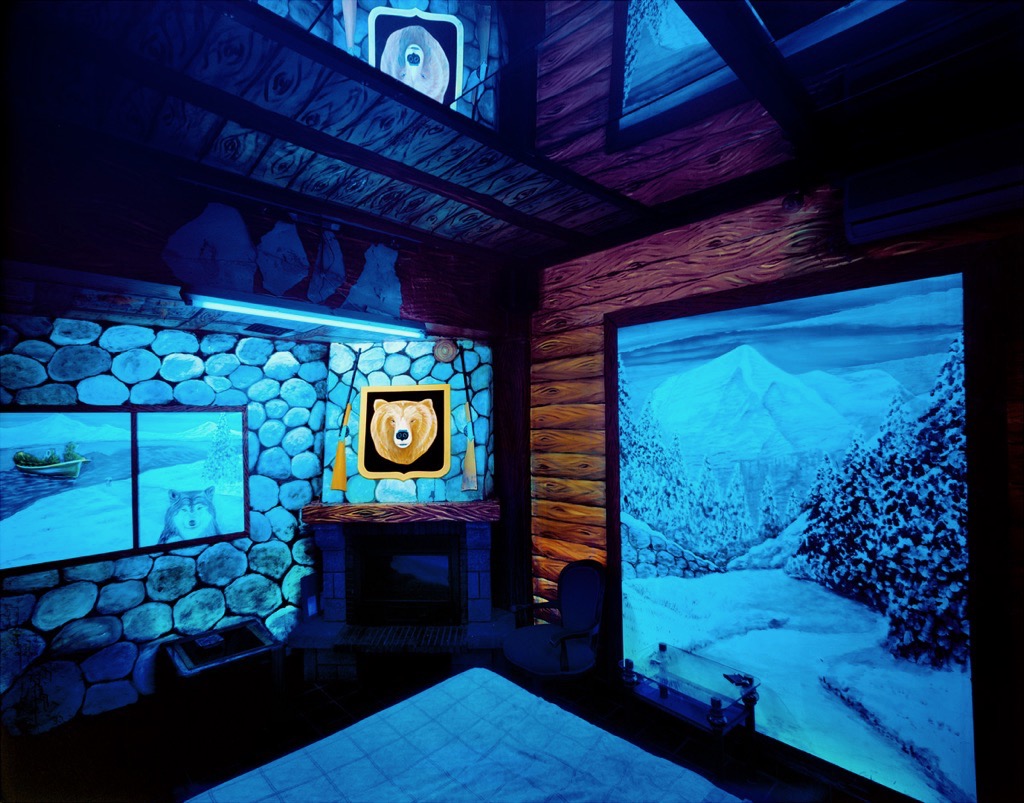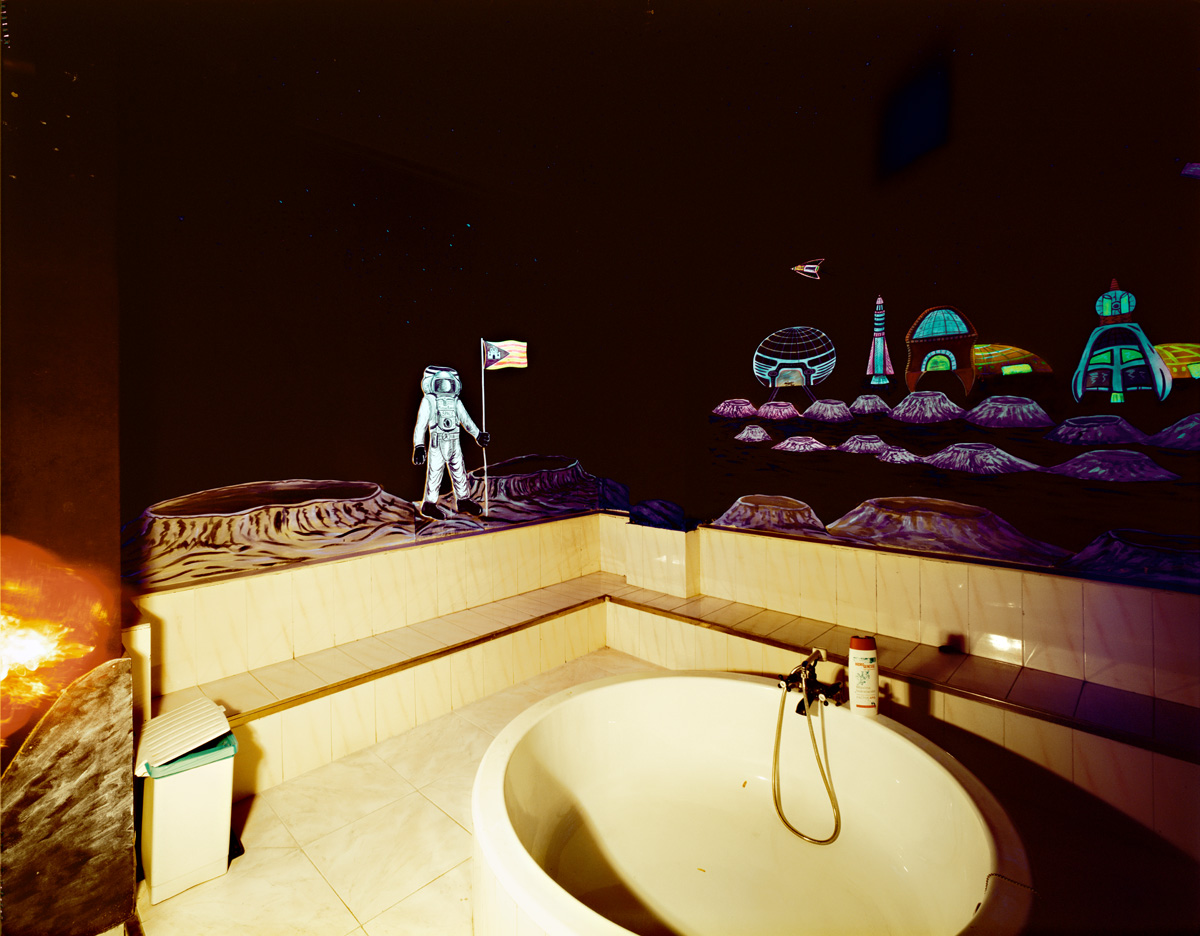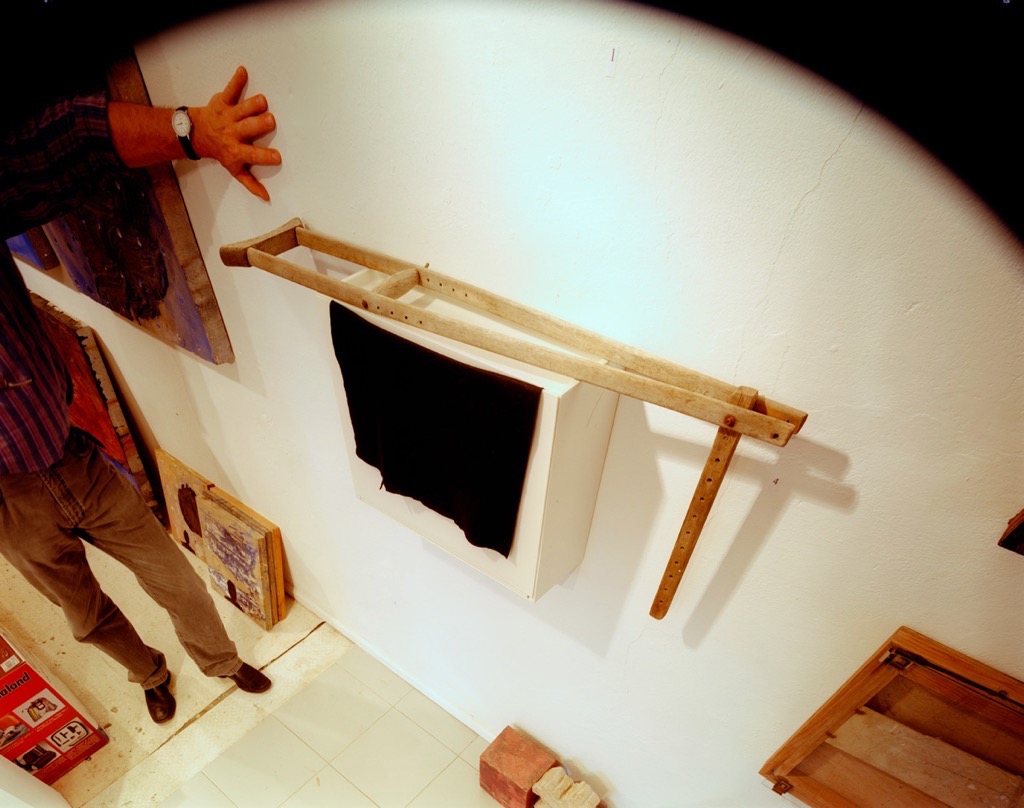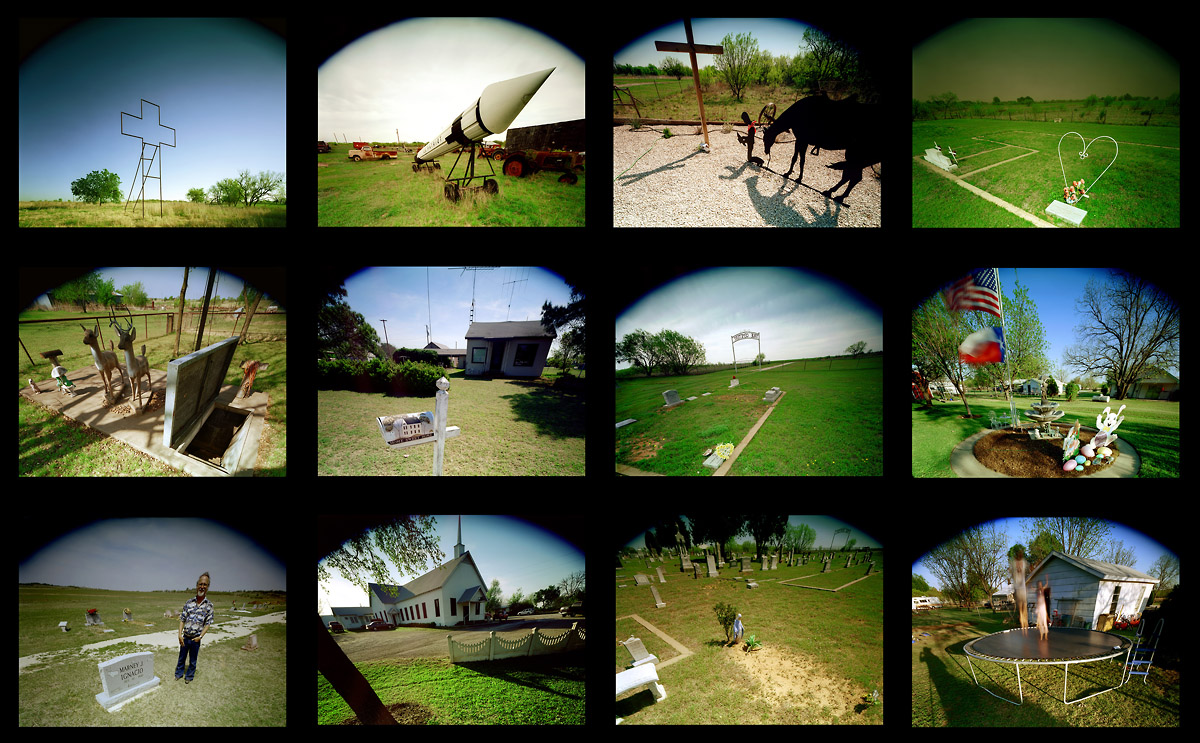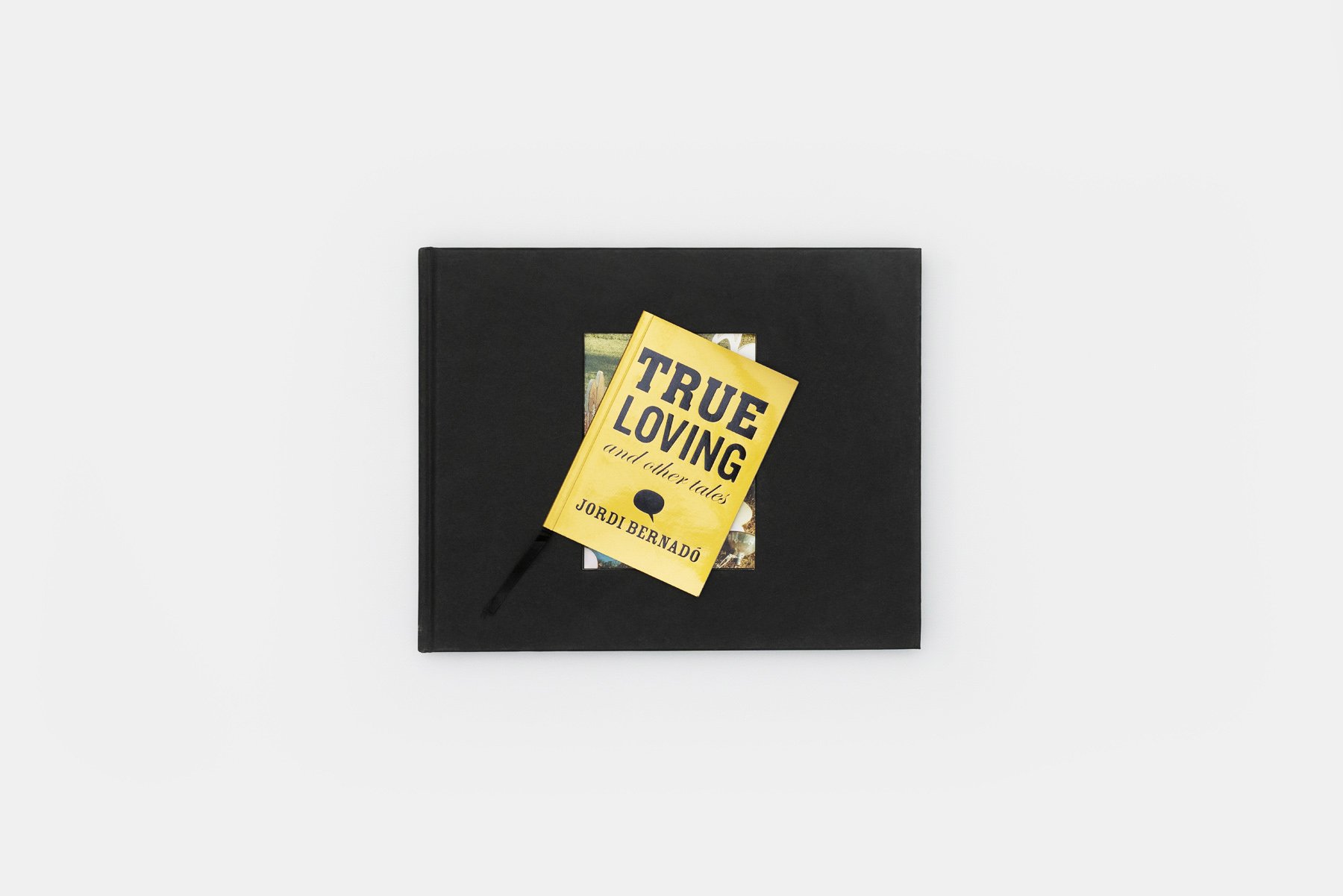True loving and other tales
Al fotógrafo le gustaría que estas imágenes no fueran el fin sino el inicio, y que el inicio contara una historia, la de un explorador que parte en busca de esas cartografías que se esconden tras la idealización del concepto de Estados Unidos.
¿Es Estados Unidos el país de las posibilidades? ¿O la posibilidad de un país?
Esta reflexión irónica sobre la idea de Estados Unidos se escribe a golpe de historias inconexas –que ocurren en varios lugares como Fuerteventura, Italia o Mallorca– y que abordan, en su mayoría, la colisión de los sueños y la realidad.
Por Christian Caujolle, comisario. Fragmento del texto publicado en el libro True Loving and other tales.
El retrato que Jordi Bernadó hace con una serie de pequeñas pinceladas locales de los actuales Estados Unidos de América contiene una dimensión literaria en la que el viajero que es deja vagar su espíritu para abrir el campo, para reivindicar su punto de vista y para que el lector, al que manipula sutilmente, imagine el alcance del desastre global, más aún si imagina lo que está fuera del marco.
El desastre está claramente presente en el hundimiento del American Star y en el futuro de sus restos mortales, como lo está en la desesperación de los payasos del American Park, caídos, en decadencia, condenados a una ridícula desaparición. El mito americano se extiende por todas partes, entre la memoria de Europa y la fantasía y una realidad cuyo espacio recoge la lamentable expresión de la mezquindad humana. Si mis tíos abuelos hubieran visto estas imágenes, no sé si habrían emprendido aquel largo viaje con su oso hacia la Tierra Prometida. Pero, quién sabe...
Mirando de nuevo esta serie de pequeños relatos caricaturescos, me sorprende que no exista en Estados Unidos un movimiento como el de esos locos activistas que pretenden liberar a los gnomos de jardín. Tal vez esto se deba simplemente a que estamos en Estados Unidos. Pero, si a alguien se le ocurre emprender tal causa, que me parecería bastante sana, me encargaría de sugerirle que eligiera como lema el título de una obra de Jordi Bernadó: "Welcome Utopia”. (…)
The photographer would like these images not to be the end but the beginning, and for the beginning to tell a story, the story of an explorer who sets out in search of those cartographies that lie behind the idealised concept of the United States.
Is the United States the country of possibilities, or the possibility of a country?
This ironic reflection on the idea of the United States is written in a series of unrelated stories —which take place in various places such as Fuerteventura, Italy or Mallorca— and which deal, for the most part, with the collision of dreams and reality.
Written by Christian Caujolle, curator. Excerpt of the text published in the book True Loving and other tales.
The portrait Jordi Bernadó paints with a serial of small local touches of today’s United States of America contains a literary dimension in which the traveller he is lets his spirit wander to open the field, to claim his point of view and to let the reader whom he manipulates subtly, imagine the extent of the global disaster, moreover if he imagines what is out of the frame.
Disaster is clearly present in the sinking of the American Star and the future of its mortal remains as it is present in the despair of the clowns of American Park, fallen down, in decay, doomed to a ridiculous disappearance. The American myth is spreading everywhere, among the memory of Europe and fantasy and a reality whose space gathers the pitiful expression of human pettiness. If my great uncles had seen these pictures, I do not know if they would have taken that long trip with their bear toward the Promised Land. But, who knows…
Looking again at this series of little facetious tales, I wonder a movement such as those crazy activists who aim to liberate the garden gnomes does not exist in the United States. Maybe this is simply because we are in America. But, if it does occur to someone to take up such a cause, which would seem to me passably healthy, I would take it upon myself to suggest they choose the title of one of Jordi Bernadó’s work as their slogan: “Welcome Utopia.” (…)

